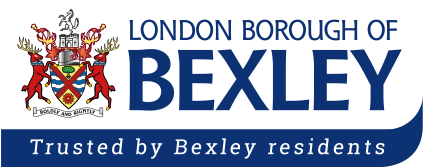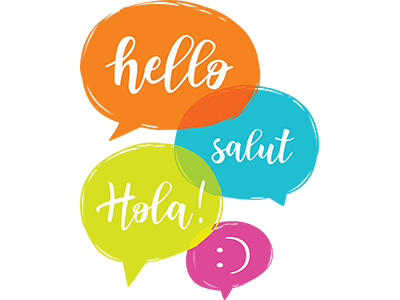Contents
- Introduction to the Born Ready, School Ready, Bexley Ready guide
- Pregnancy to 12 months
- Learning and development up to 12 months
- 1 to 2 years
- Learning and development 1 to 2 years
- 2 to 3 years
- Learning and development 2 to 3 years
- Speech, language and communication
- Childcare
- Learning and development 3 to 4 years
- Learning and development 4 to 5 years
- Tips to help prepare your child for school
Speech, language and communication
6 months
- Chat - I make noises, cry, gurgle, babble, coo, move tongue
- Listen - I like looking at your face when you talk, sing, make sounds
- Join in - I sometimes smile at you when you smile. I like to look at the pages in a book when shown
1 year
- Chat - I make repetitive sounds - mama, dada, baba and use recognisable single words
- Listen - I move my head towards sound and my name, wave when someone says “bye- bye”. I look at things you show me
- Join in - I am starting to take turns in conversation - listening and looking at you when you talk and when you stop, I will babble/ make noises. I can move my body when I hear music
18 months
- Chat - I like to explore toys and objects that look interesting. I will use more single recognisable words and may start to put words together
- Listen - I will watch you as you hold things out to me, or point to things. I can understand simple phrases, “change nappy”
- Join in - I can point to objects or find them when you say familiar things. I enjoy playing peek-a-boo and singing rhymes with actions
2 years
- Chat - I am starting to put words together, “byebye daddy”
- Listen - I can understand simple questions, “where’s teddy?” When looking at a book, I will name or make the sound of things. I join in with actions of songs and sing some of the words
- Join in - I enjoy pretending, using a phone and chatting, making you tea with a cup. I copy phrases you say “oh dear”, “all gone”
3 years
- Chat - am putting 3 or more words together
- Listen - I can remember and join in with songs and phrases in books. I like it when you change voice for characters in books. I can follow simple instructions and find things when you ask “where/ what is…..?”
- Join in - I enjoy and join in with real conversations. I like to use objects and gestures to help you understand
4 years
- Chat - I am asking lots of questions to help me make sense of the world. When speaking I am including words like; because, and, like, if
- Listen - I can talk about and answer questions about a familiar story. I can follow instructions if I am not busy playing. When you ask me questions, I can answer you
- Join in - I enjoy playing games with others and making up games. I can tell you things that happened yesterday and what might happen tomorrow. I can use lots of words about things that interest me (galaxy, space, infinity) and enjoy hearing new words
5 years
- Chat - I am speaking using adult like sentences and I can explain things and talk about my experiences. I like to pretend to be other people and make up stories
- Listen - I can understand more complicated information and follow more complex instructions
- Join in - I like you to use lots of new words and talk with me about what I am doing or what I have done
- Look at this Facebook video to see how successful communication can be even before your child is using real words.
- Have a look at the communication checker on the Speech and Language UK website to see if I am on track.



